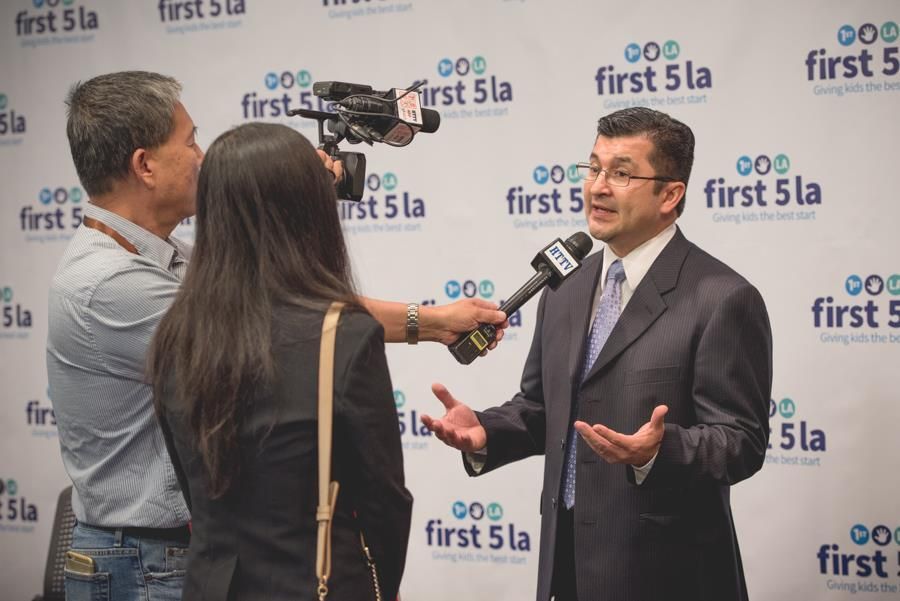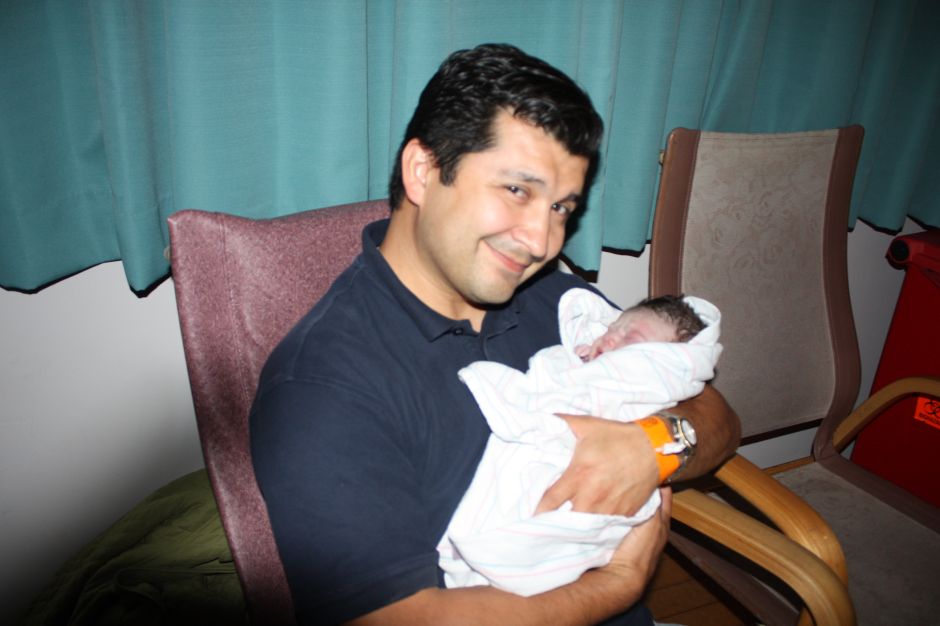
Thanks to the positions of influence and leadership he has had in his 47 years, Gabriel “Gabe” Sánchez, communications director of First 5 LA, has been victorious in great battles, including hidden discrimination in the treatment and communication with people .
“When I was a child, adults asked me about my race or ethnicity. Are you Hispanic?” Recalls Sánchez. “I did not understand; I only cared about being a child, studying, and being the best in my class. ”
But, doing a retrospective, he now analyzes the covert intentions of those comments.
When he was in high school, a “counselor” suggested that he enroll in a commercial technology school to be a mechanic. His answer was a resounding no. He wanted to go to school.

"I said, I do like cars, but I want to enroll in advanced history classes," he says. "My goal was to get a professional career."
He accomplished his mission. He obtained a Bachelor of Arts in Political Science and Chicano Studies in the
California State University, Fullerton (CSUF) and, in 2018, a master's degree in Political Science at Suffolk University in Boston, Massachusetts.
Sanchez states that his Hispanic heritage dates back to the beginning of 1907. His maternal grandmother, Frances Romero came from northern Mexico with his mother and settled in Merced. There his mother was born, also named Frances.
His maternal grandfather, Guillermo Moreno, arrived in California from Texas in the 1930s. Frank, his father, was born in Corpus Christi.
"My father met my mother when he was stationed at the base of the Castle Air Force in Merced," he recalls.
Then they moved to El Monte; then to Whittier, where he grew up and subsequently went to live in North Orange. Was 10.
A dazzling career
Sanchez describes the meaning of his Hispanic heritage as a pride of knowing "that I am part of a rich history and culture to which I can add my own experiences and efforts."
In 2008, he was part of the communications team for the successful career of Barack Obama for the White House, leading the media effort won in California and helping in the final stages of the race to obtain Colorado's electoral votes.
From 2003 to 2008 he was Director of Communications for the president of the California State Assembly, Fabián Núñez. There he developed experience in several areas of public policies, including education, higher education, medical care, energy and the environment.
Prior to working for Núñez, Gabriel worked for two periods in the administration of former Governor Gray Davis, where he oversaw the media and community outreach operations of several state agencies and departments, including CalEPA, the Department of Resources and the Office of Services Governor Emergency.
Regarding what he has done to preserve his Hispanic heritage, he indicates that, throughout his career, his heritage and experiences have influenced his actions.
“I seek guidance in my inheritance on the best way to communicate messages to people for my work in public relations,” says Gabriel. "Often, I share stories about my education with colleagues to help us gain insight and understanding about the audience we are trying to help."

Sánchez says that to preserve and promote his Hispanic heritage he is always himself and proud of who he is.
"I want to give an example to my family and professionally to young people who are just beginning their career."
The experience with the name of César Chávez
In life, the best thing he has learned to say that he is really proud to be a Latino, he says, happened in 1994 when he was a university student and marched to celebrate the name change from Brooklyn Avenue to César Chavez Avenue, in the East of The Angels,
"On that occasion I saw pride and happiness in others and felt a sense of belonging and connection with everyone," he says. “Later, as a professional, I helped organize the press conference so that then Governor Gray Davis signed the law that establishes César Chavez Day in California in 2000.
He has also had to defend his Hispanic heritage, especially when he worked for the then president of the Assembly, Fabián Núñez.
"I often received calls from angry and wrong people who blamed immigrants and people of color for California's economic problems," he recalls. "It was a constant reminder that some people want to blame others, instead of putting their energy into creating solutions and helping people."
The law of diapers
In fact, with Gabriel Sánchez directly and indirectly he helped create a law of common sense.
In 2011 he became a father who had to stay home to take care of his daughter. But when he went out with the girl to stores to buy formula milk and diapers, he realized that they didn't have a place or a table where he could change the diaper. He could not enter the men's room with the girl.
He asked store managers – even those where they sold diapers and formula for babies. There was no response., Until former Senator Ricardo Lara wrote a bill that was rejected in 2014 by former Governor Jerry Brown, but promulgated in 2017 when the issue was reintroduced by Assemblyman Ian Calderón.
“The only thing I did was ask,” said Gabriel Sánchez.
The voice of a Latino was heard. And the mandate of diapers became law.









